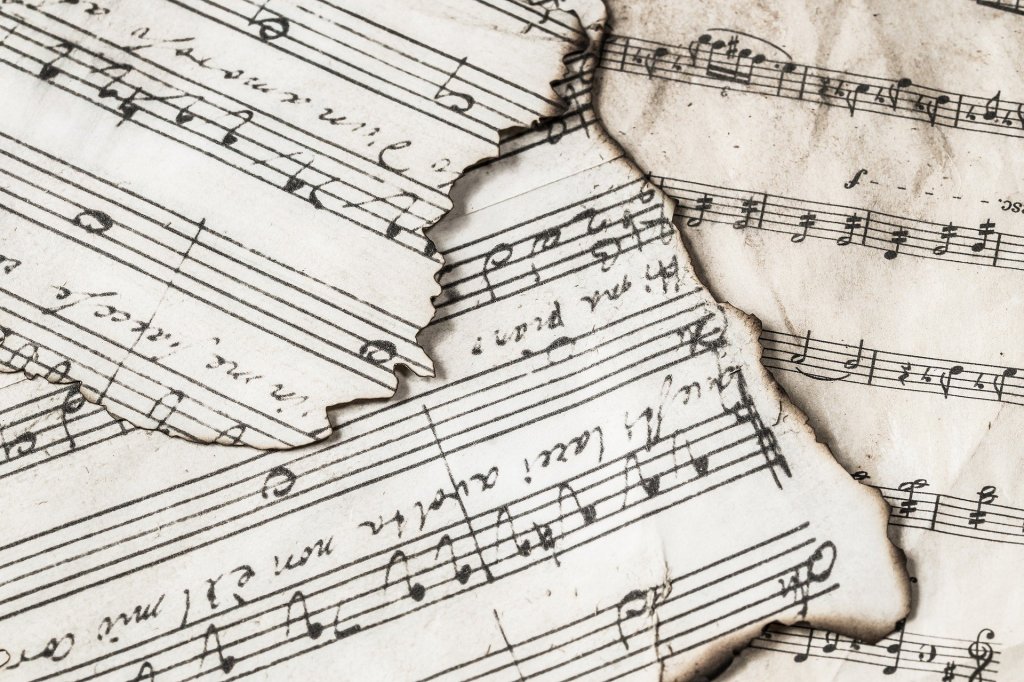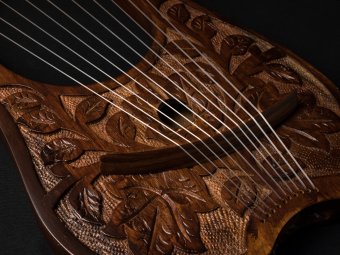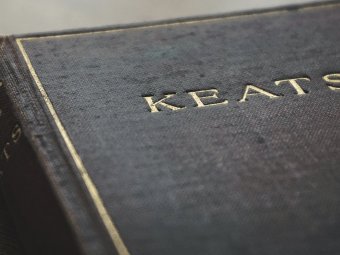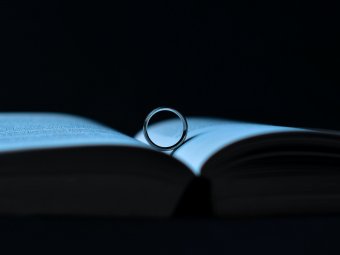For the Love of the Lyre and the Lyricist

Keats the Musical is an intriguing project by the composer Álvaro Nascimento Vieira; one which John Keats himself would enjoy because his poems were made for music.
It may be argued that John Keats wasn’t a lyricist per se—a person who writes words for music—but this is about to be challenged in the most amazing way. For two hundred years, his poetry hasn’t been set to music, and Keats the Musical is the first project to demonstrate Keats as a great Romantic lyricist in his own right.
Readers of Keats know that he loved the lyre. His tombstone in Rome depicts a lyre with broken strings. The lyre, a small harpish instrument, is also metaphorically referred to as the skill of a poet, and from which the word lyricist emanates. In fact, a fellow Romantic poet of Keats, Percy Bysshe Shelley, described his profession as a lyric, following his series of odes. Keats too is noted for his odes. An ode, in which a poet writes in praise of someone or something, is lyrical in nature, derived from the Greek word aeidein, meaning to chant or to sing.

“Readers of Keats know that he loved the lyre.”
Keats mentions ‘A soft blending/Of dulcet instruments came charmingly;/And then a hymn’ in his poem After dark vapours have oppressed our plains and ‘Louder they talk, and louder come the strains/Of powerful instruments’ in Part II of the narrative poem Lamia. But hark, dear Keats, what instruments are you referring to? The lyre? I think so.
‘Where didst thou find, young Bard, thy sounding lyre?’ is the first line of his Sonnet to Aubrey George Spencer when Keats read his poetry. What a tribute! What Keats is alluding to is that Spencer’s words are just like the musical tune from a lyre.
In Book II of Endymion: A Poetic Romance, one serene Cupid ‘kneeling to a lyre touched the strings/Muffling to death the pathos with his wings.’ What an image!
It is in the short poem Apollo to the Graces where the three Graces all answer Apollo’s question ‘Which of the fairest three today will ride with me?’ with the unified ‘I will … I-I-I-I-/And the lyre shall never have a slackened string.’
But it is ‘God of the meridian’ poem that mentions ‘the hot lyre.’ Hot lyre? I don’t know what it is, but it must be good.
“[…] O let me, let me share
With the hot lyre and thee,
The staid philosophy.”
From “God of the Meridian” by John Keats

“[…] words are just like the musical tune from a lyre.”
His Ode to Apollo mentions that the bards, the poets, ‘with fervour seize their adamantine lyres’ with their ‘melodious swells.’ He describes the ‘sweet majestic tone of Maro’s lyre’ and ‘wild warblings from the Aeolian lyre.’ In the poem, To my Brother George, Keats describes the ‘golden lyre.’
“Though feathery clouds were floating all along
The purple west, and, two bright streaks between,
The golden lyre itself were dimly seen: […]“
From “To my Brother George” by John Keats
Keats loves the golden lyre, but not all of his lyres are gold. He mentions a few bronze ones too. Apollo, the God of archery, truth and prophecy, healing and diseases, the Sun and the light, is also the God of poetry and music. The golden lyre of Apollo is a symbol of poetic achievement. And it is so fitting for a poet’s tombstone. For the tombstone of John Keats.
Keats too wrote of lutes, flutes, clarinets, pipes, bagpipes, trumpets, viols, guitars, citherns, harps, kettle-drums, tabours, tambourines, trimbels, bells, church bells, horns, organs, and the piano, but I ask Álvaro Nascimento Vieira, will theatre-goers hear the majestic tones of the lyre in Keats the Musical? Or something lyrish that the passing of two hundred years can do justice to? Keats would love that!
Álvaro’s quick reply to Martina’s question:
Dear Martina! As a composer but not an orchestrator, I am not sure if I’ll be able to decide all the instruments when the full production of Keats The Musical is staged (hopefully soon). The lyre is an ancient instrument, so possibly when this style of sound is intended, it could be replaced by its younger cousin, the harp. What I can assure you is that this sound is intended! There are some passages, especially nature-related ones, where a harp would be the perfect choice; and although I cannot say here what specific song might contain the harp, I invite you to think about this scene from the musical: John Keats’s sister, Fanny Keats, as a young child, sad that her flower has faded, but comforted by her grandmother through a very sweet lullaby… I can hear the harp. Can you?





